Lyme disease, climate change, and public health
Lyme disease is on the rise in Canada, due in part to climate change. Warming temperatures are allowing blacklegged ticks - the species that can carry Lyme disease in central and eastern Canada - to move into new territories. Hear from the scientists, medical professionals, and citizens on the front lines of this infectious disease issue, and how we can prepare and protect our families and communities from this risk.
Health, Infectious Diseases
Predicting pollen levels in a changing climate
Anyone who has experienced seasonal allergies knows the suffering that comes with itchy eyes and blocked sinuses. Looking to the future, this discomfort may get worse, as Canadians are expected to face new allergens and higher levels. Climate change is bringing longer growing seasons, which means more pollen in the air. In this video, experts from Aerobiology Research Laboratories explain the increase in pollen they have seen in recent years, and how they are monitoring pollen levels to help Canadians respond and…
Preparing an industry for the future
Aquaculture is just one of the ways that the Magdalen Islands’ residents make a living off the sea. Lisandre Solomon of the Merinov research centre explains how climate change is jeopardizing aquaculture, affecting species like oysters and scallops. But through research and development, Merinov is helping islanders adapt and move towards a sustainable future.
In March 2020, the Assembly of First Nations (AFN) held its first National Climate Gathering on the traditional territory of the Ta’an Kwächän and the Kwanlin Dün in Whitehorse, YK. Over 300 First Nations experts, leaders, youth, women, knowledge keepers, and professionals gathered to discuss the urgent crisis of climate change. In 2019, the AFN passed a resolution declaring a First Nations Climate Emergency, and this Gathering was designed to bring together First Nations’ perspectives on climate impacts, risks,…
First Nations, Indigenous Knowledges
Farmers struggle with erratic weather
In Bradwell, Saskatchewan harvest has become difficult as weather is often either too wet or too dry. Grain farmer Terry Boehm harvests his fields between rain and snow storms hoping to get some decent grain. The weather patterns his family have relied on for their livelihood for generations have changed. Across the prairies, farmers are having to adapt their farming practices to increasingly erratic weather.
Offsetting emissions from agriculture
Agriculture is responsible for 8% of Canada’s greenhouse gas emissions. “It’s part of the problem, but it’s also part of the solution,” says Kunbi Adetona, an energy systems researcher at the University of Calgary. In this video, Adetona talks about the potential of converting manure and other agricultural waste products into biogas, which can offset fossil fuel usage. But what’s really exciting is that researchers have now started converting manure into biochar — or more simply charcoal — which can be used to…
Native science and buffalo restoration
“The buffalo is the best environmentalist you can have,” Dr. Leroy Little Bear of Kainai First Nation says. In the Prairies, the buffalo is not only a keystone species, but a critical part of Blackfoot culture. A professor at the University of Lethbridge, Dr. Little Bear is a strong advocate for why it’s crucial to include Indigenous worldviews in environmental management. In this video, he discusses the environmental change he’s witnesses, and why buffalo restoration is critical for restoring ecological balance.
Take Action, First Nations, Indigenous Knowledges
Prairie cities are part of the solution
Charlie Clark, the Mayor of Saskatoon, speaks about the changing nature of cities, living in an era of global warming, and how the next generation of young people are demanding action. Despite being a “cold prairie city”, Clark believes Saskatoon’s sense of community will allow them to move quickly to “show leadership on environmental change”.
How climate change affects the health of Canadians
Did you know that the climate crisis is also a health crisis? Climate change impacts the health of Canadians - from increasing heat stroke to spreading new infectious diseases - and these impacts are getting worse. At the same time, there is a lot that we can do to protect ourselves and reduce climate pollution for healthier, safer futures.
Health, Mental Health, Heat-related Illness, Infectious Diseases, Air Quality, Take Action
The First Nations “climate lens” seeks to disrupt mainstream thinking -- that characterizes First Nations as vulnerable and passive to climate impacts -- and positions First Nations as leaders that are cultivating and scaling up urgent and transformative climate action within communities and across territories. Through interconnectivity and collaboration, a holistic approach to First Nations climate action emerges that redefines what solutions look like, and are grounded in knowledge and teachings that have been…
Indigenous Knowledges, First Nations
Like many Métis communities, hunting, trapping, and fishing are a way of life for the people of St. Laurent. But with climate change making winters shorter and ice less reliable, their season for ice fishing is shrinking, disrupting their land use and livelihoods. These Métis experiences demonstrate that both climate and culture are changing along the shores of Lake Manitoba.
Indigenous Knowledges, Métis
Supporting solar energy on Gabriola Island
On Gabriola Island, community members are beginning to notice the impacts of climate change. To reduce their ecological footprint, some residents started a non-profit organization called GabEnergy, which helps people order and install affordable solar energy systems on their homes. GabEnergy member Michael Mehta discusses the solar panels on his house and the potential for distributed, renewable energy systems across Canada.
Disability Justice and Climate Change
AVAILABLE WITH DESCRIPTIVE AUDIO: https://youtu.be/vUDsjqmQWu4
People with disabilities are the world's largest minority group and are disproportionately affected by climate change. As disability justice and climate issues collide, Cripping Climate Adaptation lays bare the often disastrous consequences of overlooking people with disabilities and illustrates the need to consider the unique needs of people with disabilities and include them in climate adaptation.
Set to a lively visual backdrop of dance, music,…
Take Action, Health, Mental Health
Energy, emissions and agriculture
Darrin Qualman is a writer and researcher – with extensive farming experience – and who has been doing some long-term thinking about agriculture, climate change and energy systems. Given the large-scale and costly use of nitrogen fertilizer, fossil fuels and other inputs in agriculture, he has determined that it takes about 13.3 calories to make every calorie we eat. For Qualman, the solutions to climate change and the farm income crisis is to shift away from high-input, high-energy agriculture.
Climate, Drought and Extremes
Dendroclimatologist Dave Sauchyn studies tree rings to learn about climates of the past and what it means for the future. His research shows that there’s a “new normal” in the Canadian Prairies and that climate change is increasing the risk of extended and severe drought.
Gender, agriculture and climate change
Dr. Amber Fletcher grew up on a farm and has a strong appreciation for farmer knowledge and the importance of rural environments and communities. Now, as an academic at University of Regina, she studies how farmers are seeing and feeling the impacts of climate change in their fields and daily lives. She’s interested in the critical contributions that women make to farm life, especially during climate extremes such as floods and droughts.
Northwest Angle #33 is a remote community in the southwest corner of Ontario that is only accessible by ice road in winter and boat in the summer. Confronted with climate change, the community is looking at how a less cold winter, shortening season, and erratic weather will affect their ice road. With a feasibility study on the table, the possibility of an alternate road is contingent on many factors lining up. Their dream is bringing their children back to their home to continue their culture and traditions.
Community and Climate Risk, Indigenous Knowledges
Joanasie Karpik is one of Nunavut’s most respected Elders on climate change. In 2017, youth and Elders gathered together at Sannirut, a popular camping spot near the community of Pangnirtung, for a video and storytelling workshop. Joanasie shares, “I’ve lived two worlds now”, speaking to the changes he has seen to the weather pattern over nearly 80 years of observation in Cumberland Sound. These unprecedented changes are outside of local knowledges of Elders and Joanasie shares, “today, because of climate change,…
Indigenous Knowledges, Inuit
Environmentally responsible ranching
Livestock producers Troy Stozek and Don McIntyre – both from southwestern Manitoba – are on the frontlines of farming carbon. By practicing rotational grazing, they’re able to raise more cattle on less land, and in doing so they’re restoring the soil and sequestering carbon from the atmosphere at the same time. Their stories and farming practices show that animal agriculture can be an important part of the climate solution.
Small towns vs sea level rise
After a series of stronger-than-normal storms knocked out their main breakwater, the small town of Ferryland Newfoundland was left with no choice but to heavily invest in shoreline protection. Now, members of the community are left wondering whether the rising costs of living by the sea are sustainable for future generations.
Renewables, culture, and community pride
The Métis village of Green Lake may seem small, but they have big ambitions. The community started a solar energy project and installed 96 solar panels on their community hall. As Mayor Ric Richardson describes, Métis people have “used the sun for generations,” so the opportunity for renewable energy development was warmly welcomed by community members. Through this Métis leadership, Green Lake generates cheaper and more reliable power, which creates connection to the land, educational opportunities for the…
At FortWhyte Alive’s solar-powered farm, young people are coming together to fight climate change, restore habitat and encourage biodiversity.
Protect and watch over Mother Earth, climate risk assessment at Mamaweswen, North Shore Tribal Council
The North Shore Tribal Council, together with Sagamok Anishinawbek, Batchewana First Nation, and OFNTSC, is preparing infrastructure for climate impacts using the First Nations Infrastructure Resilience Toolkit (FN-IRT). This approach combines technical expertise with community knowledge to support adaptation planning for infrastructure and cultural resilience.
Community and Climate Risk, Indigenous Knowledges, First Nations
Combating Urban Heat Islands
Heat waves in cities are expected to be more frequent and intense under climate change. The City of Montreal is tackling urban heat islands head-on through city greening initiatives, in collaboration with Ouranos, a climate change research consortium.
Rooftop greenhouses changing the way cities eat
LUFA farms in Montreal have built the world’s first commercial rooftop greenhouse and they’re changing the way the city eats. Their online market currently feeds 1% of Montreal’s population, with an on-demand system that has virtually no food waste. Using escaped heat from the building below and delivering fresh harvested food by electric car, LUFA are at the forefront of alternative food systems.
Faith communities providing solutions to the climate challenge
Near the end of the century, the City of Toronto could experience nearly two months of +30 °C days a year, according to climate projections. To address the growing risk of future heat waves, local faith leaders have created a network of cooling centres in churches, mosques, temples and synagogues, and are mobilizing their congregations to provide support for susceptible populations. For City Councillor Gord Perks, this example of grassroots community resilience makes him hopeful about the future.
The 2021 heat dome killed more people than any other natural disaster in Canada. In a world struggling with more frequent heat waves, this film investigates the delicate balance between the life saving use of air conditioning to stay cool and the environmental risks associated with its overuse. Researchers focused on the impact of rising temperatures on heart health explore the challenge of keeping cool without succumbing to the dangers of overheating. This documentary prompts viewers to consider the broader…
In the Heiltsuk (Haíɫzaqv) Nation, community-led infrastructure projects such as clam gardens and the Big House enhance community resilience. This film explores how values, traditions, and the principle of “Looking Back to Look Forward” guide the creation of climate-resilient, culturally relevant infrastructure. It shares the intergenerational wisdom of the Haíɫzaqv Nation on climate change and community infrastructure.
Community and Climate Risk, Indigenous Knowledges
Algal blooms, climate change, and human health
As summers become longer and hotter under climate change, many Canadians will be seeking relief at lake beaches. But hotter summers and changing precipitation make favourable conditions for algal blooms to grow in the water, which can produce toxins that are harmful to human health. Experts, Indigenous communities, and residents in the Lake Winnipeg area are all too familiar with the impacts of algal blooms on health, as they discuss in this video
Health, Infectious Diseases
Adapting to sea level rise
Indian Island First Nation is on a peninsula surrounded by water. Through a combination of traditional knowledge and scientific studies, it became clear to Chief Ken Barlow that his community would be underwater by 2100. Barlow and his community are in a race against time to protect homes, raise roads, and potentially even relocate the graves of their ancestors.
Take Action, Indigenous Knowledges, First Nations
Community-based solutions rooted in decolonization
“Real climate solutions are rooted in a return to the land - a return to and of the land - and are rooted in decolonization,” says Eriel Deranger, Executive Director of Indigenous Climate Action (ICA) and member of Athabasca Chipewyan First Nation. ICA is a network of Indigenous peoples framing the ideas and actions regarding climate change in traditional knowledge and community-based solutions. These grassroots actions, Eriel explains, will support the transition to renewable energy while also ensuring social…
First Nations, Indigenous Knowledges
Featuring Siila Watt-Cloutier, Kluane Adamek, & Cassidy Caron
In 2022, the Climate Atlas of Canada team -- in partnership with the Assembly of First Nations (AFN), Métis National Council (MNC), and numerous Indigenous collaborators -- launched Indigenous-focused data, knowledge, and resources developed by, with, and for Métis, First Nations, and Inuit communities. This launch made public climate data for all 634 First Nations communities, all 53 Inuit communities, and projects across the Métis homeland as well as new videos and resources to support Indigenous-led climate…
Featuring François Paulette
The circumpolar North is on the frontlines of climate change: the land, lakes, and lifeways of human and non-human species are rapidly changing. François Paulette, a Denesuline and member of Smith’s Landing Treaty 8 First Nation, has been a witness to these changes across his homeland. Through relationship building, trust, and balance between traditional knowledge and science, Paulette believes that important climate solutions are possible.
Indigenous Knowledges, First Nations
This video documents the impacts of climate change from an Inuvialuit perspective. On Banks Island in Canada's High Arctic, the residents of Sachs Harbour have witnessed dramatic changes to their landscape and their way of life. Exotic insects, fish and birds have arrived; the sea ice is thnner and farther from the community, carrying with it the seals upon which the people depend for food; the permafrost is melting, causing the foundations of the community's buildings to shift and an inland lake to drain into the…
Inuit, Indigenous Knowledges
Told through the voices of 24 people from Nunatsiavut, Labrador, Lament for the Land weaves together the voices and wisdom of Labrador Inuit with stunning visual scenery to tell a powerful story of change, loss, and hope in the context of rapid climate change in the North. A collaboration between researcher Dr. Ashlee Cunsolo and the five communities of Nunatsiavut, this film brings attention to some of the most pressing climatic and environmental issues of our time, and the resulting mental, emotional, and…
Inuit, Indigenous Knowledges
From oil and gas to geothermal
84-year-old Daniel Claypool worked in Alberta’s oil and gas industry for over forty years. Now, he’s at the forefront of the energy transition, and is spearheading an innovative project that will convert a decommissioned oil and gas well to produce geothermal energy. Claypool’s work shows that Alberta’s rich history - as an energy producing province - can play an important role in bridging to a sustainable future.
Reconnecting through land-based education
For many years, the community of Lubicon Cree Nation has gathered on the land for a culture camp, which brings people together to share leadership, traditional knowledge and skills like drying meat and drum and bow and arrow making. Land-based education and teachings strengthens the community’s connection to their territory, ancestors, culture, and Indigenous values in the face of a changing climate. “It’s a type of re-empowerment and reconnection to who we are as Indigenous people,” says community member Melina…
Indigenous Knowledges, First Nations
Cutting emissions by cutting waste
In Quebec’s remote Magdalen Islands, waste is responsible for a lot of fossil fuel emissions. The Matériauthèque is trying to change that. This innovative social enterprise project recuperates and promotes usable building materials to prevent them from going to the landfill. Join Mayka Thibodeau, from the Centre de recherche sur les milieux insulaires et maritimes (CERMIM), as she gives us a tour.
Food Sovereignty in northern Manitoba
The Meechim project follows the story of Garden Hill First Nation – a northern Manitoba community that is only accessible via air and ice roads – and its journey to build a self-sustaining farm. Through a combination of both Indigenous and farm knowledge, the community’s efforts to attain food sovereignty show that climate resilience can lead to better social, economic, health and environmental outcomes for all.
Agriculture, First Nations, Indigenous Knowledges
The unique and rich knowledge of Métis people is linked to their history, homeland, and holistic experience and understanding of the environment. With intergenerational insights regarding resilience and adaptability, Métis people are sharing these teachings and thereby contributing meaningful solutions and hope in a warming world.
Indigenous Knowledges, Métis
Métis people have a deep connection to the ecosystems within their homeland that endures. With climate change, the Métis are seeing impacts on animals, medicines, water, and extreme events that affect the health and wellness of communities. Conserving and sustaining species and territories in an era of climate change is a responsibility that is critically important to Métis citizens. From renewable projects and land-based education to Indigenous Protected and Conserved Areas (IPCAs), Métis are leading the way on…
Indigenous Knowledges, Métis
Connecting with Traditional Land Stewardship
Working in a sea of trees within a tidal wave of energy -- known as a wildfire -- wildland firefighters have one of the most dangerous and important jobs on the planet. Protecting both the land and people’s property comes naturally to Métis wildland firefighters, connecting them deeply with the land and ecosystems, across the Canadian Prairies. Métis cultural knowledge amongst these wildland firefighters -- rooted in values of respect, stewardship, and equity -- helps us all understand how climate change is…
Indigenous Knowledges, Métis, Forests
Using data to make smart climate change decisions
Dominique Paquin of Ouranos specializes in climate data, modelling & projections. Decision-makers and everyday Canadians need to understand how these highly technical tools can be used to facilitate real change. In this video, Dominique breaks down the different parts of a model and explains how her work can help us understand and prepare for the future.
Community Owned and Operated Solar Company
As their oil wells began to dry up, the small community of Montana First Nation was faced an unemployment crisis. That’s when the idea of solar energy came up. The Nation founded Green Arrow Corp. Akamihk, western Canada’s first Indigenous-owned and operated community solar energy company. Green Arrow’s own team of trained community members is now installing solar panels across all of Alberta.
“You hire your own people, by your people, for your people. We can do this for ourselves, we understand these types of…
Take Action, First Nations, Indigenous Knowledges
How will climate change affect agriculture?
Warmer temperatures could bring some benefits to farming in Canada, but climate change will also likely lead to new risks that farmers haven’t seen before. Anne Blondlot of Ouranos breaks down some of the key changes the agricultural community could be facing.
An innovation in low-impact agriculture
The community of Brant Colony in southern Alberta has built a barn unlike any other in Canada. This barn produces 13,000 eggs per day, and at the same time balances the energy it makes and uses so that it doesn’t create any emissions - so called “net-zero”. The community and project partners hope the barn will be a model for learning and inspiration across the agricultural sector.
Winter Roads in a Warming Climate
Ice roads are critical for many communities – especially Indigenous ones – living in remote regions in northern Canada. These cold weather dependent routes allow essential supplies – including food and building materials – to be trucked in at a lower cost than by plane. However, in a warming climate, these connections are literally melting away.
Indigenous Knowledges, First Nations
What does climate change mean for Canada?
Earth has warmed by 1 °C in just over 100 years. Damon Matthews, a climatologist from Concordia University, describes how this change in temperature is both human-caused and unparalleled in geologic history. Taking us through the evidence of our warming climate, Matthews discusses what these changes mean for Canada and suggests that the case for a dramatic policy response is very clear.
On the frontier of making land sustainable for long term productivity
In oil-rich Oxbow, Saskatchewan, 101-year-old retired farmer, Frank Cushon has been watching the weather. He says it’s been warming and farmers have to adapt. Observing how soil and crops are affected by conventional farming practices and the variable weather, Frank’s son Ian has converted 4400 cultivated acres to organic on their third-generation family farm. They’re continually learning to improve farming practices and find ways to use less fossil fuels. The Cushon’s goal is to reduce their impact to keep the…
A father's journey through climate emotions
Dustin Thiesen’s concerns about climate change escalated into serious anxiety and depression after his son was born. “Sometimes I fall back into that depressive state,” he says, “but I always find a way to pull myself back out.” Dustin shares his story of working with these difficult emotions, moving through the dark times, and finding the motivation to be part of the solution.
Climate change, culture, and society
Energy transitions are often considered a scientific or technical issue. However, University of Waterloo’s Imre Szeman argues that climate change is fundamentally a cultural issue. He argues that responding to climate change requires a shift in the way we think about cars, energy, chemicals, over-consumption, and other aspects of the fossil-fuel dependent “petrocultures” that permeate our everyday lives.
Bringing climate change into community planning
Featuring members of the Canadian Institute of Planners (CIP), this video showcases how the planning profession is at the forefront of developing policy, capacity, and climate resilience within communities and environments across the country.
Adapting To Climate Change
Owning over half of the aging public infrastructure in Canada, municipalities are facing some of the biggest challenges they’ve ever seen as a result of climate change. Creating plans to adapt to climate impacts is complex and uncharted territory for many municipal staff, councillors, residents, and community leaders. In this video, urban, rural, and Indigenous communities in the Prairies share their unique approaches, successes, and lessons learned in prioritizing risks and preparing for the changes to come.
Cities, Take Action, First Nations
Life on a shrinking island
Prince Edward Island is slowly disappearing into the ocean, in large part due to climate-change-related sea level rise and powerful storm surges which are increasing erosion of the island’s soft sandstone base. Tides have become noticeably different and have destroyed infrastructure including lighthouses, bridges, wharfs, streets, boardwalks, water wells, and sewer lines. As one resident remarks, “climate change is here and, if anyone doesn’t believe it, just get up and look out the window”.
Inuit Knowledge and Climate Change
Qapirangajuq: Inuit Knowledge and Climate Change was co-directed by acclaimed Inuk filmmaker Zacharias Kunuk (Atanarjuat The Fast Runner) and PCC’s Executive Director Dr. Ian Mauro. It’s the world’s first Inuktitut language film on climate change, released in 2010, and takes viewers into the Arctic and the Inuit knowledge that is bearing witness to rapid climate change. This award-winning film has been screened around the world – the Smithsonian Institution, Berlin International Film Festival, ImagineNative, etc…
Inuit, Indigenous Knowledges
Wildfire, water, and our health
Many of Canada’s forested watersheds are prone to increasing wildfires under climate change. Less vegetation and more erosion are just a few of the ways in which wildfires disrupt water availability and quality. This poses threats to human health and raises challenges for water management systems. Experts Monica Emelko and Francois Robinne explain the connections between wildfire, water, and the health of Canadians.
Collaborating to confront climate change
Quebec’s huge territory means that its future under climate change is complex and varied. To better understand risks & responses, the provincial government created the research consortium Ouranos. Ouranos are now leaders in cutting-edge climate change research, working with many partners to address Quebec’s climate future.
Take Action, Climate Science
Demonstrating the benefits of energy efficiency
The Reep House for Sustainable Living is a 100-year old house in Waterloo, Ontario that has been retrofitted to be maximally energy efficient. This demonstration project shows how older housing stock can be an effective part of the climate change solution through a combination of cutting edge technology and simple upgrades.
Lubicon Cree leading the energy transition
The Lubicon Cree Nation of northern Alberta are leading the low-carbon energy transition. Community member Melina Laboucan-Massimo witnessed the changing landscape from industrial development in her territory, and she decided to take action. As part of her Masters Thesis, she fundraised and coordinated the construction of 20KW solar energy system. Melina calls the project “a beacon of what is possible in our communities” and her perspective shows how renewable energy aligns with Indigenous philosophies of…
Take Action, First Nations, Indigenous Knowledges
Rose Roberts grew up on her family’s trapline, learning traditional knowledge from her Elders through observation and practising their traditional ways of living. Because of her close connection to the land as a trapper, she has experienced and witnessed the drastic impacts of climate change. She also has a PhD, which allows her to “live in both worlds” and speak about climate change from two different ways of knowing.
First Nations, Indigenous Knowledges
70 Years of Farming Experience
Roy McLaren has a lifetime of farming experience: he’s farmed in southwest Manitoba for over 70 years. He looks at the Climate Atlas maps of climate projections with concern. “That is pretty bad,” he says, looking at maps showing a huge increase in very hot weather. “With that kind of heat,” McLaren muses, “we’d have to change our farming methods. We’d have to adopt new crops.”
Farming in a changing climate on Vancouver Island
Robin Tunnicliffe has farmed for about 25 years, growing a wide range of organic vegetables for local restaurants and farmer’s markets. When she started farming, there was a more predictable climate, but she is now experiencing more weather extremes that put her farm at risk. To combat the problem, Robin is breeding climate resilient seed that is adapted to her specific growing conditions, which gives her hope for the future.
A Model Adaptation Strategy
Cities, towns, and municipalities are on the frontlines of dealing with climate change and need tools to adapt. The City of Selkirk, just north of Winnipeg, is a national leader in climate change adaptation, and has developed a long-term strategy to assess risks facing the community and how to respond. Developed through a collaborative planning process with the Prairie Climate Centre, Selkirk shows that solutions are within our grasp provided that applied planning and a commitment to action go hand in hand.
For decades, Silla Watt-Cloutier has been a strong voice for communities and geographies on the frontlines of climate change. The Inuit author and advocate emphasizes the importance of understanding climate change as a human rights issue. “As Inuit, we rely on the cold, the ice, and snow,” Watt-Cloutier explains. “That is our life force... It isn’t just about the ice itself, it’s what the ice represents.” For her people, the Arctic’s cold and ice is at the centre of culture, transportation, safety, health, and…
Inuit, Indigenous Knowledges
Warmer winters mean changing identities
Winter is central to the Canadian prairie identity. It’s the defining season for a people whose common enemy is also their strength. The long cold snowy winter is also important to economies and ecosystems. And that winter is changing. Set to the backdrop of the Nestaweya River Trail, one of Canada’s longest skating trails, resilient settlers and newcomers alike talk about adapting to a world where the joys of the season are shrinking and what that will mean for future generations.
“With an issue like climate change, it’s all hands on deck,” says Rajan Rathnavalu, founder and president of NEWO Global Energy. Rathnavalu’s not-for-profit social enterprise is at the heart of the energy transition in Canada - providing solar energy training and installation across the Prairies - in a way that creates healthy citizens and communities. Rathnavalu’s story shows that social enterprises like NEWO are playing a critical role in societal transformation that support climate mitigation and adaptation.
Shouldering the risks of climate change
After a 1-in-100 year storm flooded Truro, Nova Scotia under five feet of water, the conversation around town shifted to questions about the future. What’s clear to local residents is that climate change is bringing higher tides, stronger winds and flooding, leaving more and more people shouldering the costs and risks.
“Tariuq Takujannik - The Ocean From My Eye” explores youth perspectives of climate change through the lens of pinhole photography and participatory video. Students from Attagoyuk High School in Pangnirtung, Nunavut participated in a weeklong workshop about oceans, climate change, and photography. Building cameras from recycled materials, students took to the shoreline to create photographs, guided by the question: why are imaq (sea water) and siku (sea ice) important to youth? By engaging youth in creative, hands-…
Indigenous Knowledges, Inuit
Terry Teegee is Regional Chief of the British Columbia Assembly of First Nations, Tribal Chief of the Carrier Sekani Tribal Council, and the former forestry coordinator for Takla Lake First Nation.
He's seen first hand how unsustainable forestry practices and disregard for traditional indigenous knowledge about forest ecosystems have worsened the impact of climate change.
"We’ve lost that real connection with the land, and I think we’re seeing the result of that," he says. “That's why we’re seeing here, not only…
Forests, Take Action, First Nations, Indigenous Knowledges
A Métis Dendroclimatologist's Perspective
One of the best ways to understand long-term climate change is to look at historical changes in the environment. According to Dr. Colin Laroque, trees are storytellers, the “Elders of the forest,” and if we listen carefully to them, we can hear their teachings about what they have seen and experienced. Taking us on this journey, back in time, using the science of “dendroclimatology” -- or tree ring analysis -- Laroque shares his unique perspective as a Métis scholar, and shares his knowledge of climate change…
Indigenous Knowledges, Métis, Forests
The Manitoba Métis Federation’s Water Quality Program
With “boots on the ground” along the Seine River that flows through Winnipeg, the Manitoba Métis Federation’s water quality program supports Métis citizen scientists to conduct research and monitoring related to climate change and pollution. As the “eyes and ears of the environment,” Métis citizens are collecting data, documenting change, and spreading the word around the importance of preparing for the future.
Métis, Indigenous Knowledges
Climate Change in the Magdalen Islands
Fishing and hunting are not only a major part of the economy for the Magdalen Islands- they’re a way of life. But global warming is causing major changes on the islands, from coastal erosion to worsening storms, species distributions in the sea, and more. We met with three local fishermen and hunters, who told us about the changes they’re seeing firsthand, and how they’re adapting.
Mitigating climate change on the East Coast
An energy revolution is hitting the town of Tatamagouche, Nova Scotia. New 800 kW wind turbines are popping up everywhere, transforming the ever-present wind into electricity that’s used to power electric cars and offset the community’s reliance on fossil fuels. The move to renewable energy isn’t just reducing the community’s impact on the climate, it’s also sparking a whole new green economy.
Supporting mitigation to protect Lake Superior
Many citizens of Thunder Bay have an important connection with Lake Superior, which will be impacted by climate change. To mitigate these effects, the local non-profit EcoSuperior and the City of Thunder Bay are encouraging active transportation, local food production, and waste reduction. Citizens are also working together to build resiliency in their neighbourhoods.
Learning to coexist with a longer, hotter fire season
Dr. Toddi Steelman researches connections between environmental science, public policy, and decision-making. She examines the devastating 2016 fire in Fort MacMurray to learn how we can better protect ourselves from fire seasons that are becoming longer and more dangerous because of climate change.
“We’re at some kind of a tipping point in terms of how humans are interacting with their environment,” says Steelman. “What we need to do to learn to coexist better with fire.”
Building Resilience and Cutting Emissions
Toronto understands the importance of climate action. In recent years it has been hit by extreme weather that has adversely affected services, infrastructure and economic activities. The human impact of climate change is front and centre as the city works to increase its climate resilience, increase awareness about climate change, and to make urban life better.
The prairies and its people are connected by the Lake Winnipeg Watershed, one of the largest drainage basins in the world. This dynamic system relies on the stability of weather patterns, which are being affected by the changing climate. Troubled Waters urges action to address strains on waterways, and emphasises the need for collaboration across borders. Everything is interrelated from upstream to downstream, let’s work to protect the treasured biodiversity that we all depend on.
“Greenest City in the World by 2020”
In 2009, Vancouver announced that it wanted to become the “Greenest City in the World by 2020”. Their action plan hopes to wean the city off fossil fuels and prioritizes pedestrians, bikes and transit when planning neighborhoods. As a result, Vancouver now has the lowest carbon emissions of any city in North America.
Youth Activism, Climate Crisis and Mental Health
What can you do when everyday you wake up and don’t know what the future will look like? When everything around you is already falling apart. When your generation's future is having to deal with the climate crisis. Youth activists talk about connecting and organising with other young people as a way to channel climate anxiety and despair. Hope is active and lies in the community.
Mosquito-borne diseases and climate change
“What’s the Buzz” tells the story of Canada’s increase in mosquito-borne diseases over the last 20 years, largely due to climate change. With warmer, wetter weather in our future, experts expect these diseases will become more common. Canadians are being impacted while also responding to an increase in West Nile Virus and adapting to lessen their risk.
Health, Infectious Diseases
Supporting mental health in affected communities
When wildfires are at your community’s door, there’s only one thing to do: evacuate. As communities are uprooted and fires are being fought, people are put under extreme stress that leads to both short- and long-term mental health impacts.
How to stay hopeful amidst the climate crisis
With the existential threat of climate change, it’s only natural to feel overwhelming emotions of anxiety, fear, or anger. But at the same time it is critically important to find sources of hope that can allow us to imagine a better future and work towards it. In this video, author and expert Dr. Elin Kelsey explains the importance of being hopeful and offers tips on where to look for motivation in difficult times. For Kelsey, hope is a “brave political act” that requires courage and commitment in the face of…
Groundbreaking wind-battery storage
“It’s been nothing but positive,” says Chief Cadmus Delorme about the Cowessess First Nation wind-battery project, located just outside of Regina. In this video, community members describe the project’s significance for environmental responsibility, community pride, and local sustainable economies. The community has now developed a 320KW solar farm on the site, making the first known wind-solar battery storage project in the country, and Chief Delorme says they’re “hungry for more.”
Innovative collaborations protect wine industry
When it comes to agriculture and climate change, grapes are an early indicator. In Ontario’s Niagara-on-the-Lake wine region, severe weather and Polar Vortex cold snaps threaten this nine-billion-dollar industry. New technologies and an innovative collaboration between industry, research scientists and wind machines, ensures wineries like Pillitery Estates can keep one step ahead of the changing climate. Not only are they adapting but they’re buffering their risk by storing double the inventory. Planning for next…

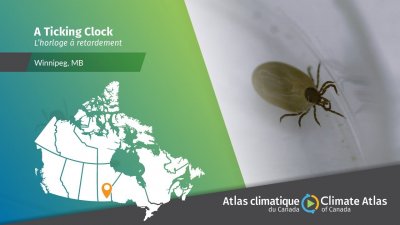
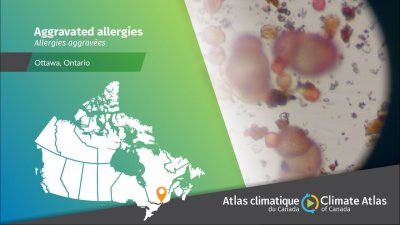
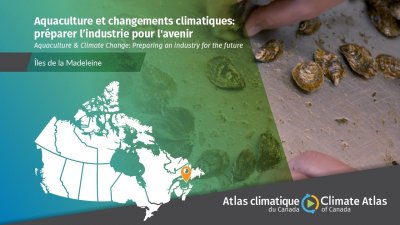
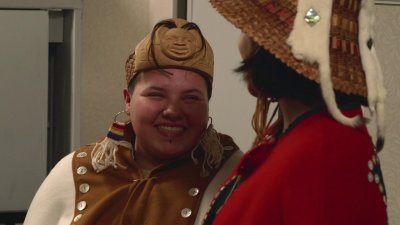
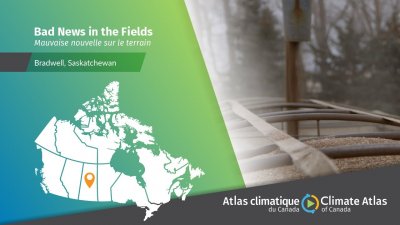
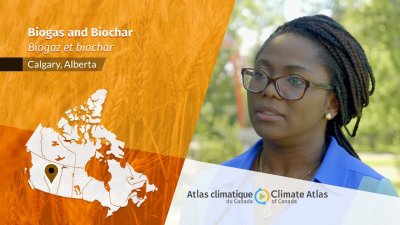
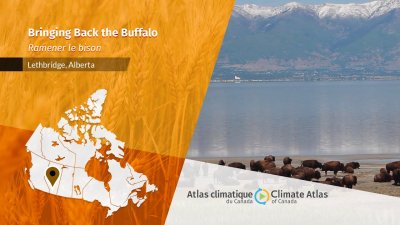
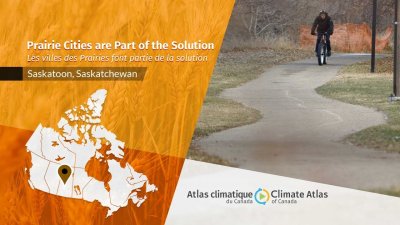
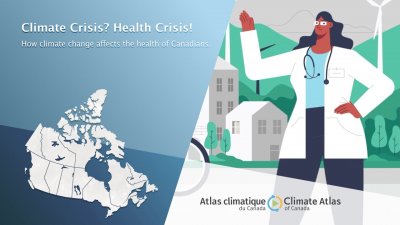
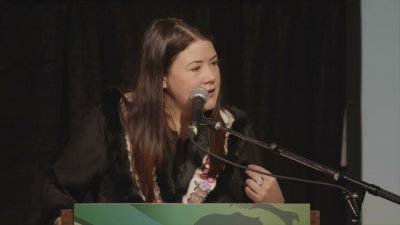
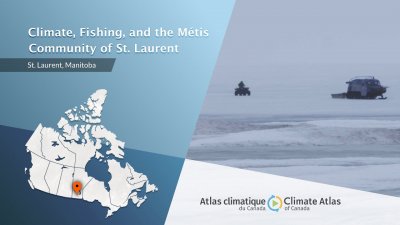
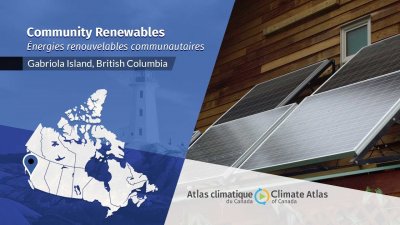
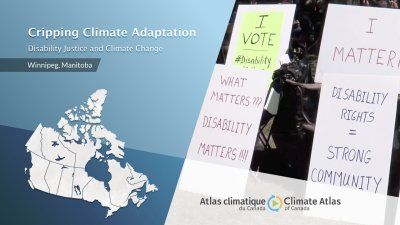
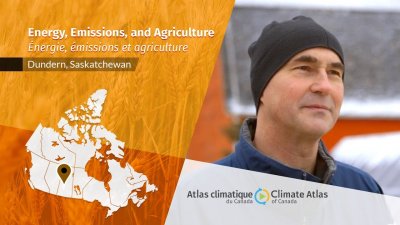
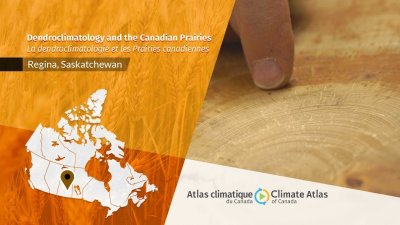
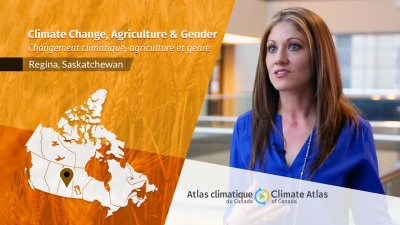
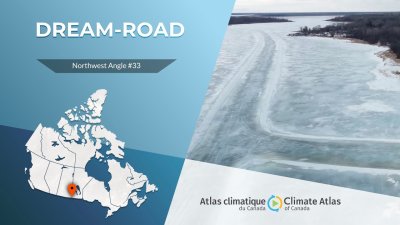
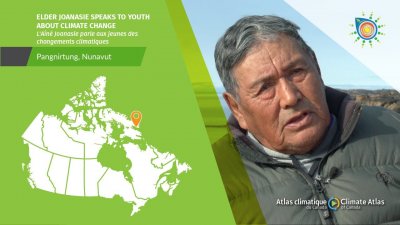
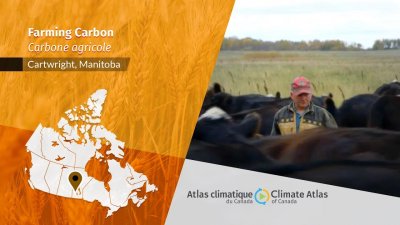
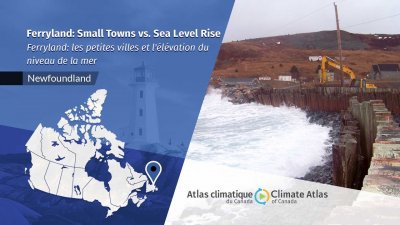
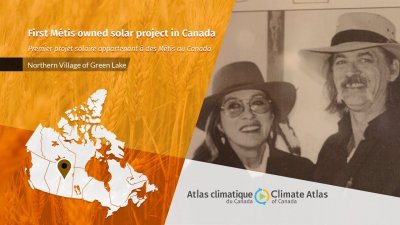
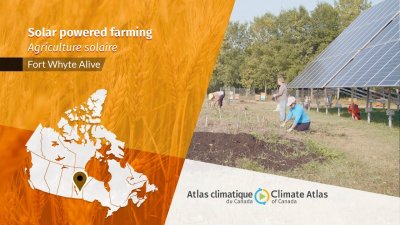
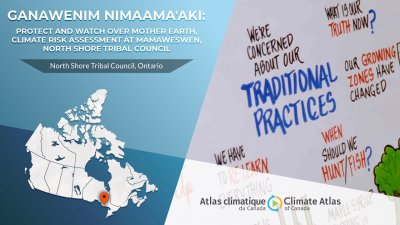
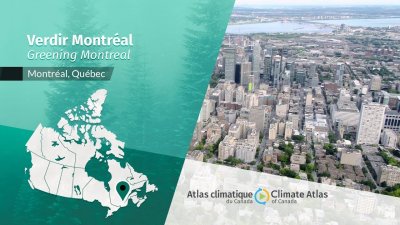
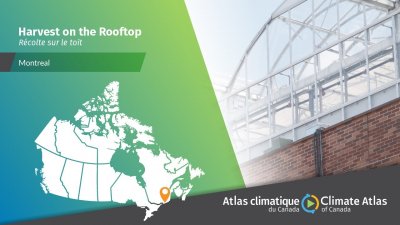
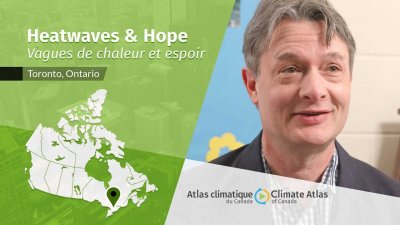
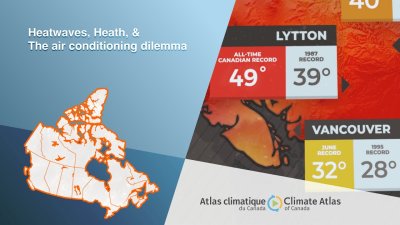
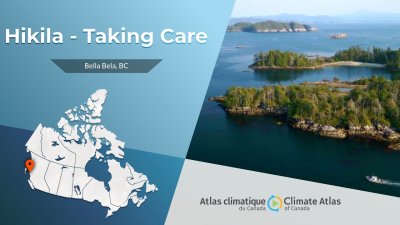
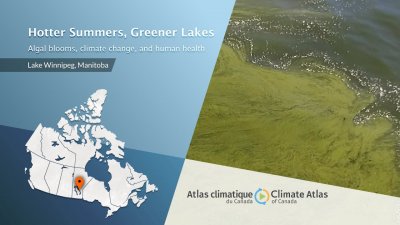
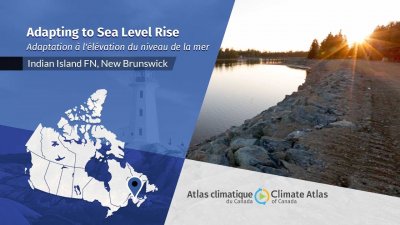
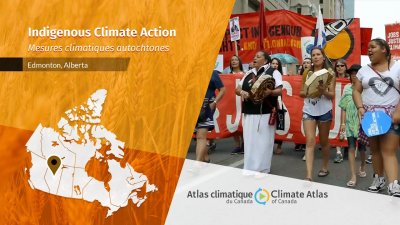

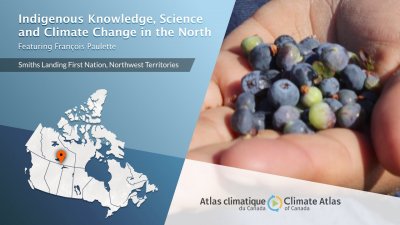
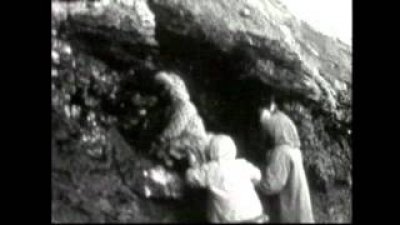
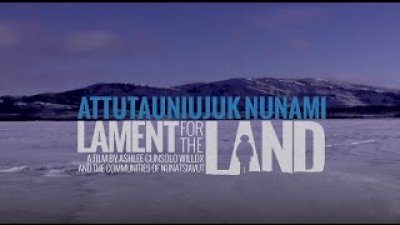
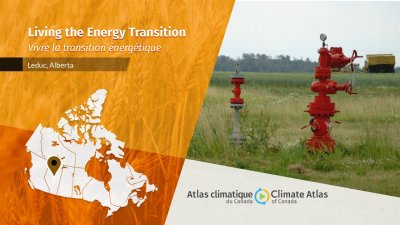
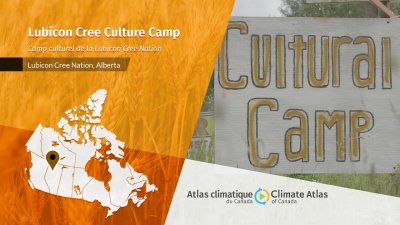
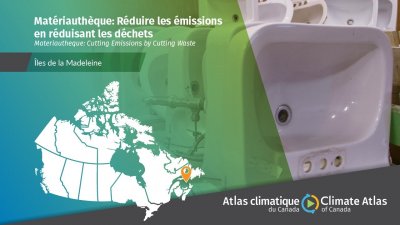
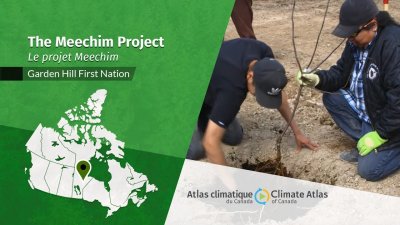
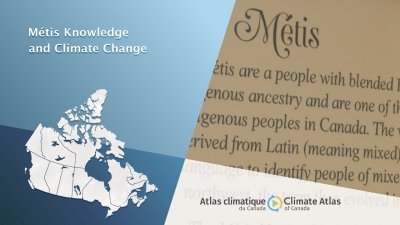
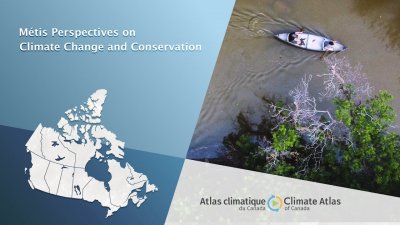
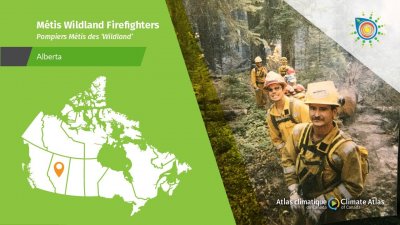
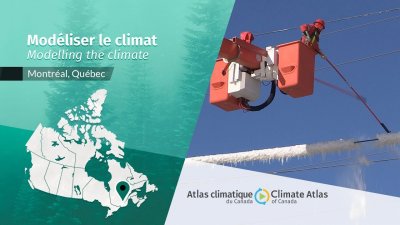
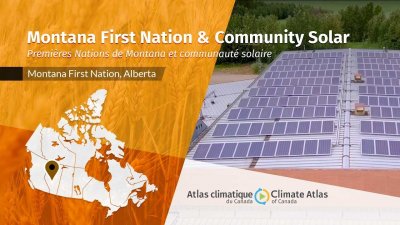
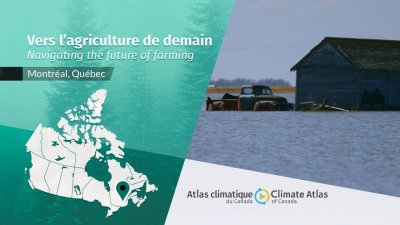
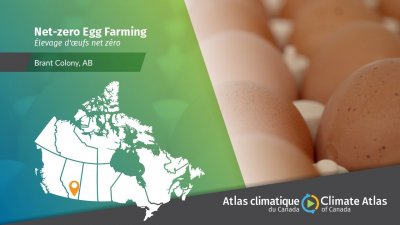
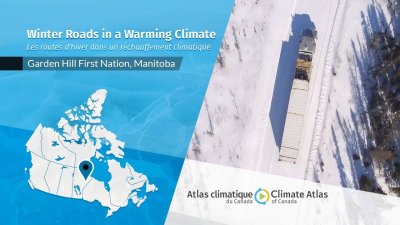
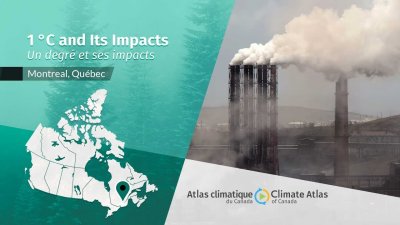
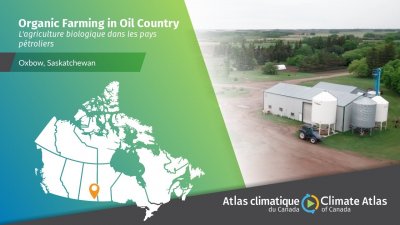
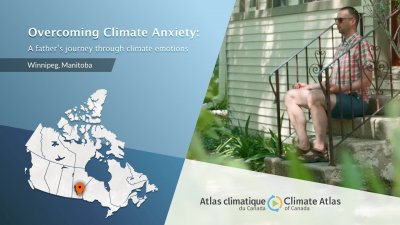
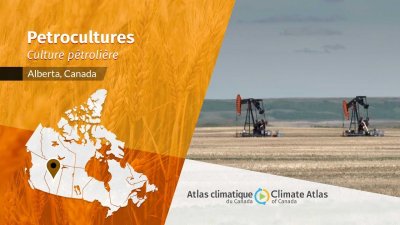
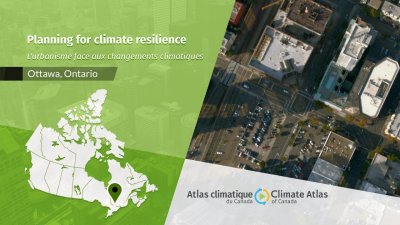
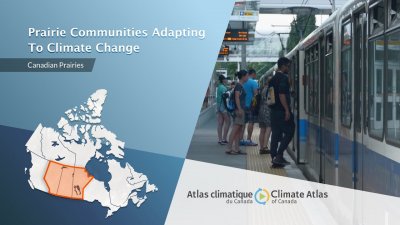
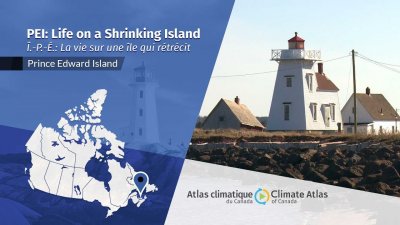

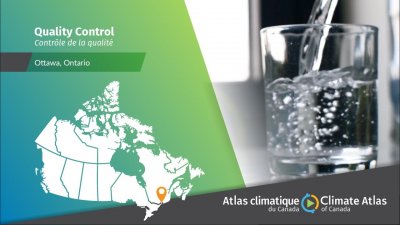
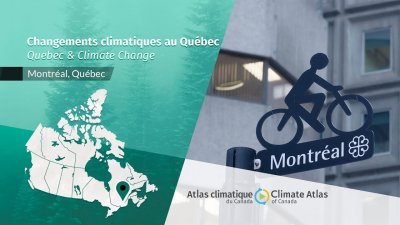
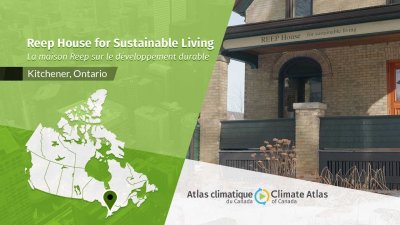
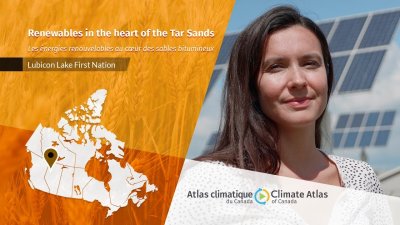
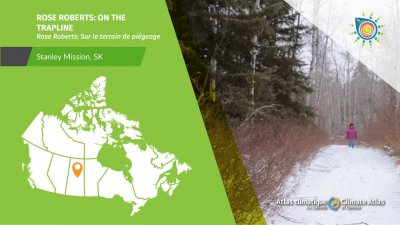
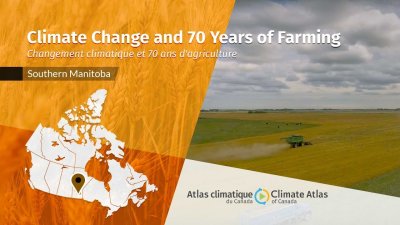
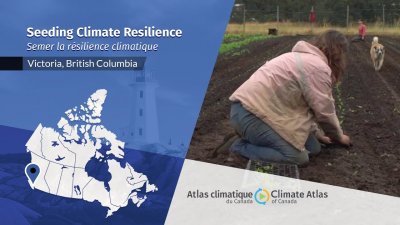
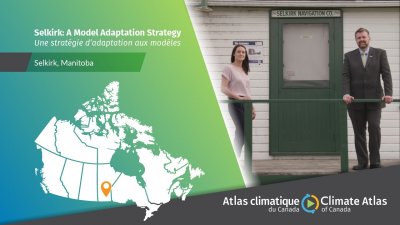
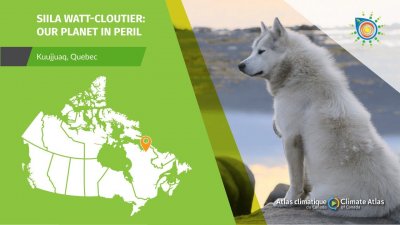
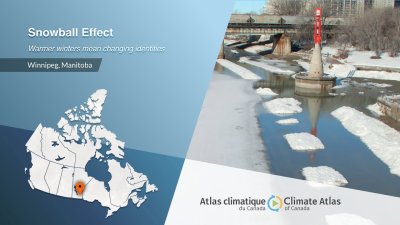
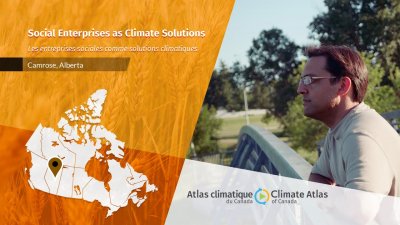
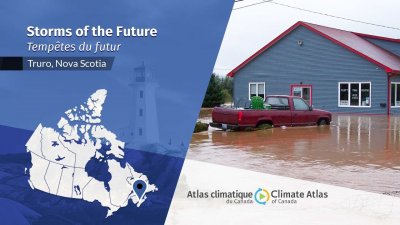
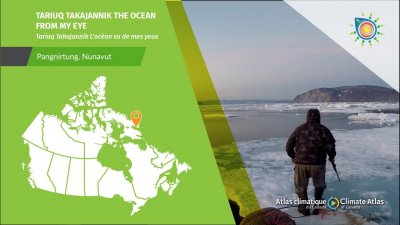
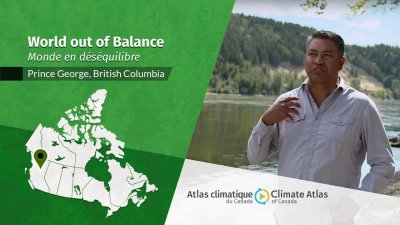
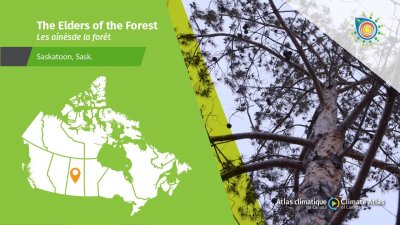
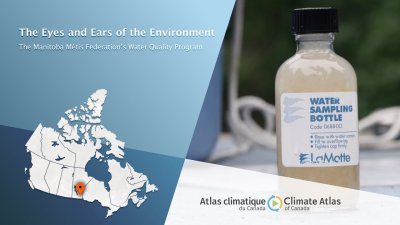
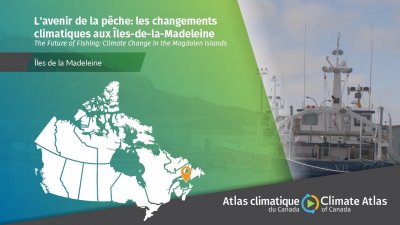
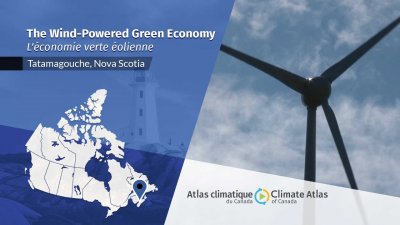
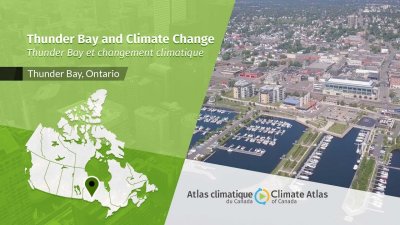
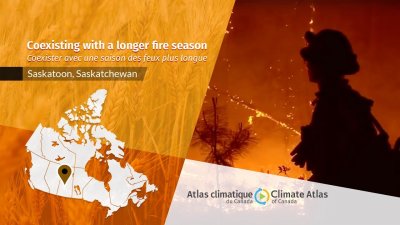
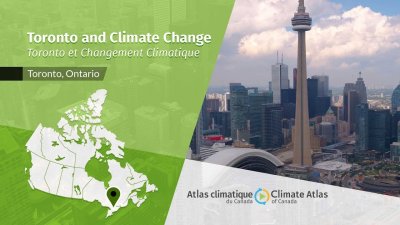
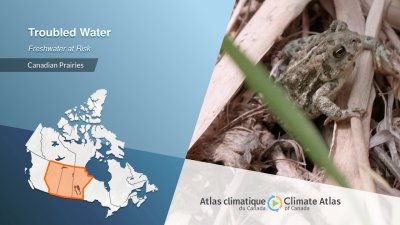
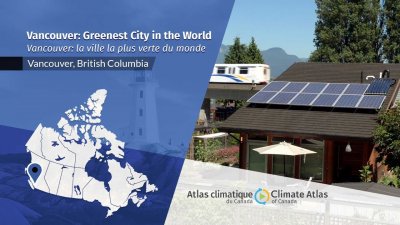
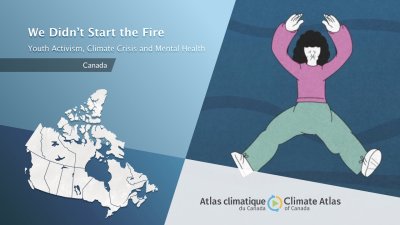
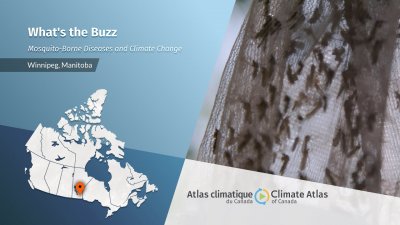
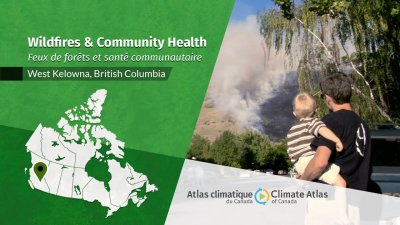
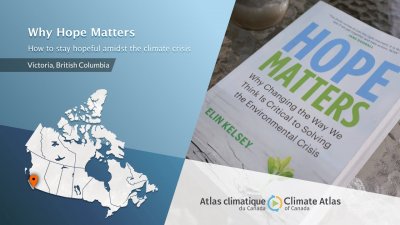
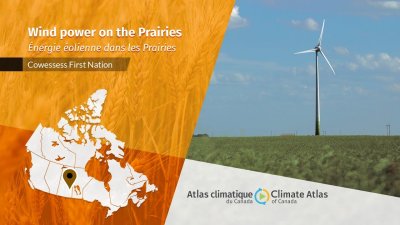
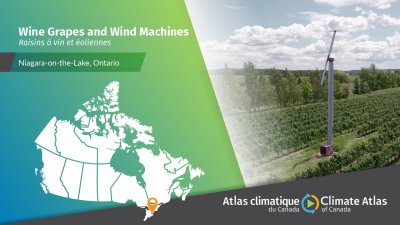








.png)


